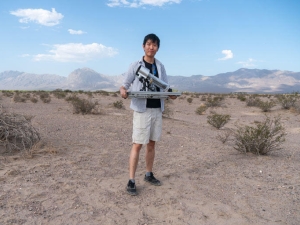

Research Bio
Christian Borgs is professor in the Berkeley AI Research Group (BAIR) in the EECS department at Berkeley, and faculty director of the Bakar Institute of Digital Materials for the Planet.
He worked at Microsoft Research for over 22 years, where he started in 1997 as co-founder and co-director of the Theory Group. In 2008, he co-founded Microsoft Research New England in Cambridge, Massachusetts, a lab that brings together traditional CS and statistics research with economics as well as qualitative social science research. Borgs was Deputy Managing Director of this lab from 2008 until he left Microsoft for Berkeley in 2020.
Borgs holds a Ph.D. in mathematical physics from the University of Munich and a Habilitation in mathematical physics from the Free University in Berlin. He was the C4 chair of Statistical Mechanics at the University of Leipzig before founding the Microsoft Research theory group. Among the honors he has received are the Karl-Scheel Prize of the German Physical Society, and the Heisenberg Fellowship of the German Research Council. Borgs has twice been a member of the Institute for Advanced Study in Princeton. He is a Fellow of the American Mathematical Society, and the American Association for the Advancement of Science. He serves on several editorial boards, prize committees, and governing boards, including the Board of the Institute for Mathematics and its Applications (IMA), where he was Chair from 2017 until 2019.
Borgs is author of a little over 150 research papers and inventor of about 30 patents. His current research focuses on both applications for AI for science, in particular chemistry and material science, and the science of networks, including mathematical foundations, particularly the theory of graph limits (which he co-invented about 15 years ago), graph processes, graph algorithms, and applications of graph theory from economics to systems biology and epidemics. Borgs is also well known for his earlier work on mathematical statistical physics, including the theory of first-order phase transitions and finite-size effects. He was one of the first to apply methods from mathematical statistical physics to problems in theoretical computer science, including phase transitions in combinatorial optimization, and the study of Markov chains.
He has recently begun to work on aspects of responsible AI, from differential privacy to questions of bias in automatic decision making or polarization in online communities, as well as applications of AI to material science, with the aim to create materials to address urgent problems like climate change and the scarcity of water in many regions of the world.
Research Expertise and Interest
theoretical computer science, probability theory, combinatorics, complex networks, statistical physics, artificial intelligence, applications of artificial intelligence and machine learning in engineering and sciences

